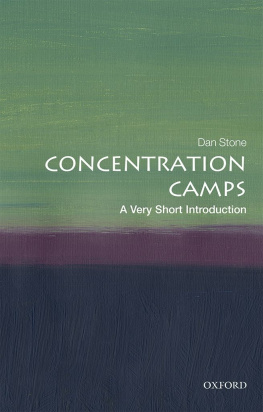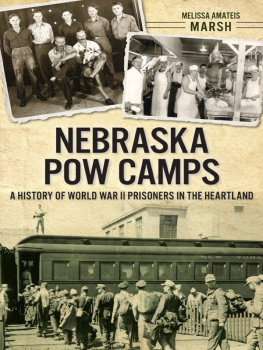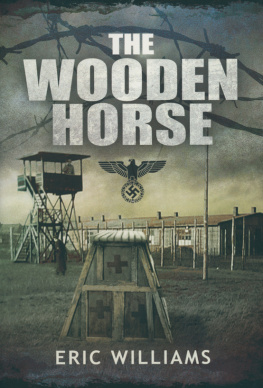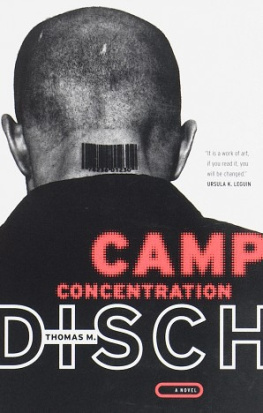My first encounter with Neuengamme concentration camp was at an annual members day in May of 2017 for the Vriendenkring Neuengamme, a Dutch foundation dedicated to the memory of the camp, its dwindling survivors and their families. Martine Letterie, the then director, had asked me to give a presentation on Joseph Menthol Sylvester, the central figure in one of my previous books, who had been interned in a transit camp at Schoorl, the Netherlands. Afterwards, a spritely older gentleman approached me and we began talking. We clicked. His story grabbed hold of me and in your hands you now have the result.
While researching and writing this book, I had the full co-operation and trust of the foundation Vriendenkring Neuengamme and was allowed to be part of an extraordinary visit to the site of the former concentration camps. Thank you to the board, members, my travel companions and Martine in particular.
Alyn Bessmann at the KZ-Gedenksttte Neuengamme was incredibly helpful while I was researching the camp. I could go to her with every one of my questions and thanks in part to her and Johannes Barths help, I was provided access to many photos and drawings that went into the making of this book.
It is inconceivable just how much information can still be tracked down after all these years. My searching was made easier thanks to the help of the kind employees at the involved organisations. Hubert Berkhout from the NIOD Institute for War, Holocaust and Genocide Studies has to be mentioned here. Much of the detective work started with him. Thank you, Hubert, again! My many thanks also go out to the employees at the Dutch Red Cross, the Amsterdam Municipal Archives, National Monument Camp Amersfoort and the International Tracing Service in Bad Arolsen, Germany.
As the research progressed, yet more questions regarding Wims time in hiding in Zwaag/Blokker and Baarsdorpermeer arose. What started with a photograph of four boys in a field ended with the discovery of their names and even the prayer card of Wims murdered friend in hiding. Ina Broekhuizen-Slot from the De Cromme Leeck Historical Foundation did valuable detective work that led to important facts and details. Through Ineke Dekker-Sombeek, I was granted access to the archive made for her uncle, Cor Sombeek. Thank you very much to all.
Edwin Vrielink manages the digital archive for the Vriendenkring. His fact-checking of the chapters about Husum was incredibly valuable and I am thankful to have been able to call on his extensive knowledge about the camp. Together, we were allowed to join Wim for a memorable and remarkably powerful visit to the former site of Husum concentration camp, sixty years after his last trip. An unforgettable day.
While researching Fliegerhorst Plantlnne, I was helped by Joachim Eickhoff, thanks to whom an unknown part about the war could be written. Henry Porter (ex-RAF) helped to explain the RAFs command structure. For that I am very grateful to both.
I would like to thank Wido van de Mast, a former commander of the Volkel airbase and F-16 pilot, for his valuable advice incorporated into the chapter about the attack on the Cap Arcona.
I had the opportunity to brainstorm multiple times with German researcher Wilhelm Lange about the disaster in the Bay of Lbeck, with the Cap Arcona as the focal point. During my visit to the museum in Neustadt in Holstein, he provided access to unique records. Thank you for the constructive collaboration the museum in that fine city is more than worth a visit.
In addition to these, there are of course many people who in their own way each helped the book to come about. For that, I am very grateful to them: Arend Hulshof, Jos Huurdeman, Carola Kieras, Peter Tack, Nan Kluft, Ria Jong, Bart Elsman, Jeroen Droste, Gerrit van Gils, Dick Lohuis, Ingrid Wegerif, Sietze Geertsema, Nico Spilt, Steffi Friedrichsen, Maria Jepsen, Gerhard van Dijk, Martin Reiter, Eric van den Berg, Johanna Jrgensen, Thomas Lorenzen, Marc Brugman and Janine Doerry.
Naturally, my collaborators in the Dutch publishing industry with whom I, as a self-published author, had a pleasant time working cant go unmentioned: Enno de Witt as tireless editor and conversation partner, Paul Scheurink who designed yet another extremely fine book, Paul Impens and Ronal Rhebergen from Ef & Ef Media for the valuable advice and the books sale. Thank you as well to Dorine Holman, Cindy Eijspaart, Jan Peter Prenger and Erik Hoekstra for all of their input during and after a very special meeting with this books protagonist.
A special word of thanks, also, to Haico Kaashoek, who didnt solely limit himself to the translation of this book from Dutch into English but put his heart and soul into it.
Without the co-operation of its central figure, Wim Aloserij, this book would never have come about. Over the course of dozens of personal interviews and just as many clarifying phone conversations, all that had taken place before and in particular during the war slowly became clear. In the nineties, after almost fifty years of silence, Wim Aloserij began speaking about his experiences for the first time. Hed only mentioned snippets of his story until then. In the year before publishing this book in Dutch, I was able to hear his complete story for the first time including sometimes horrific details. That speaks to a boundless trust, for which I am enormously thankful to Wim. His sister Jo, too, told me wonderful stories and so provided valuable information about their childhood on Kattenburg and the war years that followed.
It was a privilege getting to know Wim Aloserij and being allowed to write this book.
Books
Afwikkelingsbureau Militair Gezag. Overzicht der werkzaamheden van het Militair Gezag gedurende de bijzondere staat van beleg. Dutch National Government, 1946. ISBN unknown.
Bstlein, K. et al. Das KZ Husum-Schwesing, Aussenkommando des Konzentrationslagers Neuengamme. Bredstedt/Brist: Verlag Nordfriisk Instituut, 1983. ISBN 3-88007-121-7.
Berthold, W. De ondergang van de Cap Arcona. Blaricum: Bogot en Van Rossum, 1978. ISBN unknown.
Dekker, P. & Van Dompseler, G. Van naam tot nummer, slachtoffers van de Puttense razzia. Grou: Uitgeverij Louise, 2014. ISBN 9-789-491-536236.
Van Dijk, A. Het concentratiekamp Neuengamme: leven in de schemering van het bestaan. Self-published, 2012. ISBN 978-90-484-1962-3.
Eckel, C. & Garbe, D. Konzentrationslager Neuengamme: Katalog der Ausstellungen Band I Hauptausstellung. Bremen: Edition Temmen, 2014. ISBN 978-3-8378-4047-6.
Eckel, C. & Garbe, D. Konzentrationslager Neuengamme: Katalog der Ausstellungen Band II Ergnzungsausstellungen. Bremen: Edition Temmen, 2014. ISBN 978-3-8378-4047-6.
Von Frijtag Drabbe Knzel, G. Kamp Amersfoort. Amsterdam: Mets & Schilt, 2003. ISBN 978-90-533-0367-2.
Geertsema, S. P. De ramp in de Lbeckerbocht: Nederlanders bij het einde van Neuengamme. Amsterdam: Uitgeverij Boom, 2011. ISBN 978-94-6105-272-8.
Haverkate, J. & Vaanholt, G. Twente 4045. Zwolle: Wbooks. 2015. ISBN 978-94-625-8075-6.
Hulshof, A. Rijpstras ondergang: het lot van een burgemeester in oorlogstijd. Amsterdam: Querido, 2016. ISBN 978-90-214-0204-8.
Huurdeman, J. Bij de beuk linksaf. Leusden: Historische Kring Leusden, 2014. ISBN 978-90-802573-8-2.
Ineichen, S. Cap Arcona 1927 1945: Mrchenschiff und Massengrab. Zrich: Limmat Verlag, 2015. ISBN 978-3-85791-769-1.
Kaienburg, H. Vernichtung durch Arbeit: Der Fall Neuengamme. Bonn: Verlag J.H.W. Dietz, 1990. ISBN 978-3-801250-09-6.
Lange, W. Cap Arcona: das tragische Ende der KZ-Hftlings-Flotte am 3. Mai 1945. Eutin: Buchverlag Rogge GmbH, 2014. ISBN 978-3-942943-08-6.
Leppien, J.









